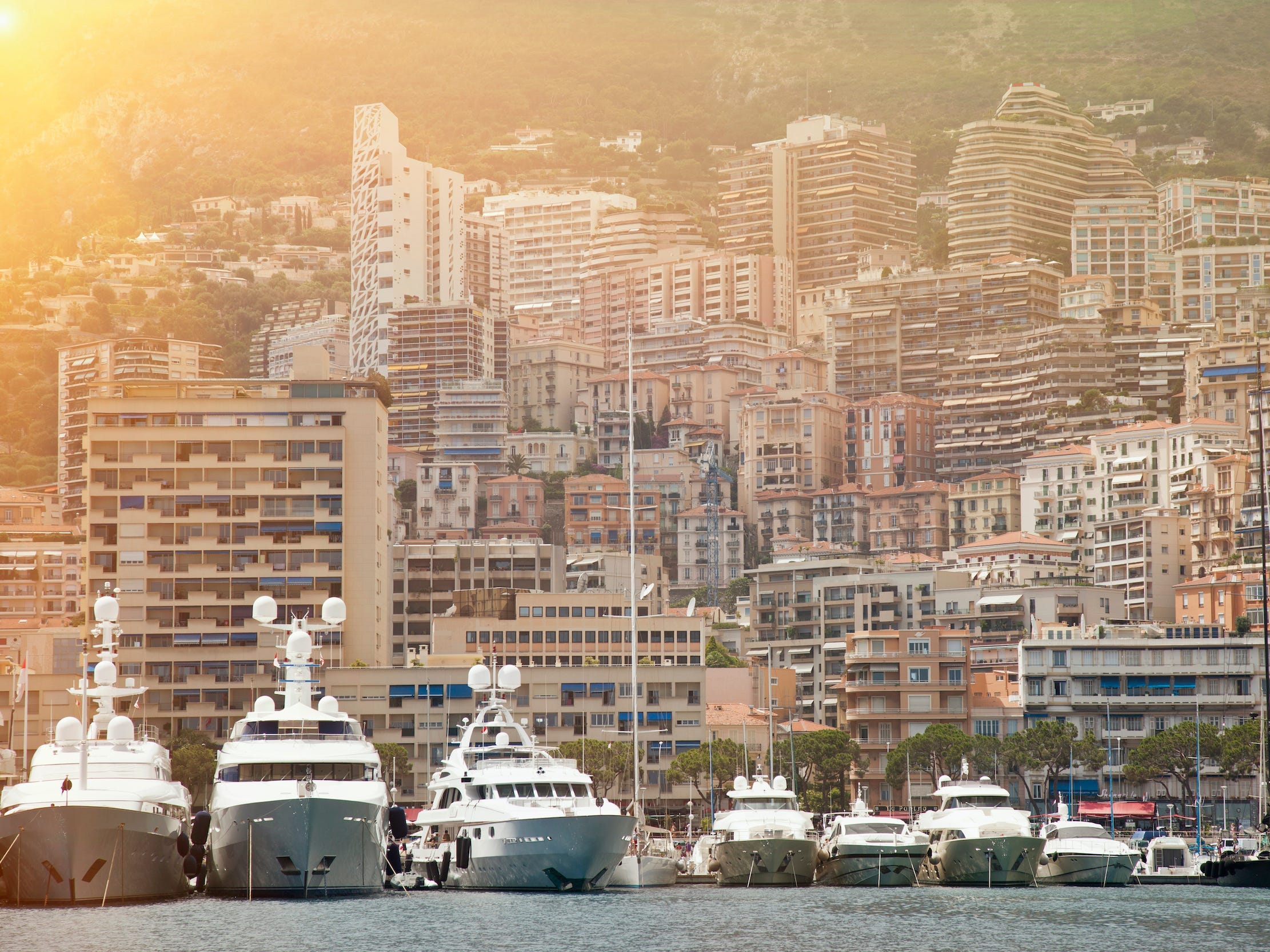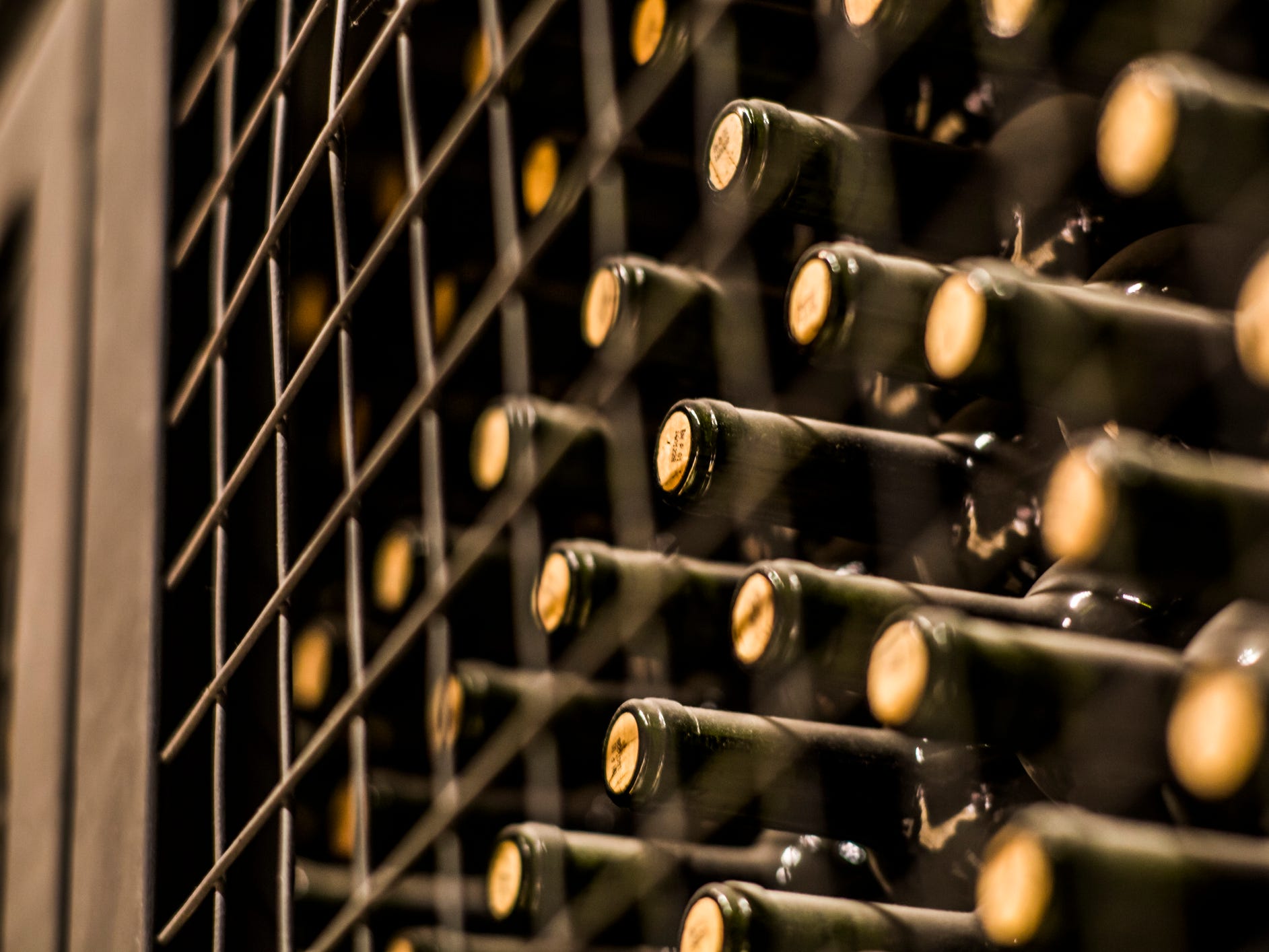
- During lockdown, many wealthy Americans saw little impact on their incomes.
- At the same time, their outgoings cratered: Galas and charity events were canceled and vacations nixed.
- As a result, some high-end industries — think perfumes, fine wines, and jewelry — have seen a boost in business.
- Visit Business Insider’s homepage for more stories.
Perfumer Ben Krigler had a deadline to meet. He’d spent the last few months working on a bespoke fragrance for a client. The $95,000 project was intended to be the ultimate custom anniversary gift for the client’s wife.
There was only one problem: The couple was currently on their yacht, moored off Monte Carlo, but were leaving for the waters near Formentera by the end of day. Would the package containing the crystal bottle of liquid engraved with his wife’s initials make it to the dock in time? Krigler managed to ensure it did and the couple cast off, package in hand, to continue their wandering around the Med. These were no full-time sailors, though, but wealthy one-percenters who had taken refuge on the vessel as a result of COVID-19.
“My client said he was spending the entire summer on the yacht because of the pandemic,” Krigler told Business Insider. “He and his wife are living on the ocean these days, and they don’t go out, spending money in the outside world. But he was telling me how much money he was spending while he was stuck on the yacht: all the caviar, the Champagne.” And, of course, the fragrance.
Certain luxury sectors are soaring right now
Call it the Corona Bonus. During lockdown, many wealthy Americans saw little impact on their incomes; if their earnings did drop, they were among the least impacted of any group — the widespread economic woes left them largely untouched. At the same time, their outgoings cratered: Galas and charity events were canceled and vacations nixed.
Take the Texas-based couple who commissioned Krigler to create complementary, his-and-hers fragrances inspired by a dream European trip they were forced to abort in the wake of the pandemic.
"They told me, 'I want to feel like I'm going from the Ritz in Paris to Cap d'Antibes or Capri – create something that makes me feel like I'm going there,'" Krigler explained. Other clients have even admitted to him that lockdown has been lucrative. One real estate mogul told the perfumer that their net wealth had boomed thanks to rents still being paid but their own overheads vanishing, and so they felt able to treat themselves to a bespoke scent.
Krigler's firm has received commissions for 17 custom fragrances so far this year. In a typical 12-month period, it would likely develop between 10 and 20 fragrances total. Clients are also more impatient, driving the research and development process down from a year-and-a-half to five or six months during the pandemic.
The jewelry market is rock solid
High-end perfumers haven't been the only ones to benefit; jewelry is a hot commodity right now, too. Just ask Manhattan-based Josh Weinman, a world-renowned specialist in colored diamonds like those from Australia's Argyle mine. The stones he sells can cost anywhere from $50,000 to $1 million.
It was in April that he first encountered the idea of the Corona Bonus, during a round of golf with some fellow diamantaires.

Yuri Smityuk/Getty
"My friend had a client come in who said he had been supposed to be taking a big vacation in a mega yacht off the coast of Capri with some other couples," Weinman told Business Insider. "When they had to cancel, his wife turned to him and said 'How about that diamond you've been promising me instead?' He sold a million-dollar diamond, which was a whole lot more expensive than the trip to Capri would have been."
Engagement rings, in particular, are seeing an unseasonal boost
LA-based Dan Moran of Concierge Diamonds has had a similar experience in recent months. He estimates that his business in July 2020 was 30% busier than it was the same month last year. Moran told Business Insider that he is currently working with three separate clients on engagement rings where the center diamond alone costs $100,000 or more.
Per Moran, proposals usually begin after Labor Day, but the engagement schedule started earlier this year. "I think as people realized that things were going to be like this for a while, they decided to stop putting big life decisions on hold, like getting engaged," he said. "People are stuck at home, it's depressing, and let's face it, fine jewelry brings joy to pretty much everyone. They want a statement piece to say: I got through this terrible time, I earned this."
He, too, has customers who are spending their vacation money on jewelry, rather than opting to bank it for a rainy day. "Many of my clients are middle and upper class workers whose incomes and work schedules have not been interrupted during the lockdown. They're able to work from home, but because they're no longer spending money on things like going out, they have extra cash that they were planning on spending elsewhere."
Restocking the wine cellar with pricey reds
Tiffany Bradshaw is a wine educator and concierge in California. She's seen people directing their money away from trips and spending, instead, on vintages that evoke the places her clients can't visit right now. The 150 or so wines she sells top out at $350 per bottle for a 100-point vintage like the Surrealist from Jean-Charles Boisset.
Bradshaw says her business in May 2020 was more than double the same month the previous year.

Getty Images/Tim Martin
"Sales started picking up immediately, because people were all of a sudden stuck at home without planning to be, and frankly, they turned to alcohol," she said of the early days of the pandemic. "There was a lot of anxiety and concerns about the unknown and their health so people wanted wine to relax and feel better." They kept replenishing their cellars as their disposable income effectively increased.
Nips and tucks are more popular than ever
Another luxury business that's enjoyed a bounce from the pandemic is cosmetic surgery, at least per surgeon Dara Liotta, who works on Manhattan's Park Avenue.
"The most common thing that I hear is that [a client] budgeted X amount of dollars for a summer vacation and time away. And since that's not happening, they're ticking their surgery off of their bucket list," she said. "I had one patient tell me that they normally have a consistent shopping habit, and without anywhere to wear anything, they decided to shop for their face rather than new shoes or handbags."
Dr. Liotta described another putative patient who came straight to her consulting suite as soon as a lavish trip to Paris was canceled. "She literally came in and told me that she had $6,000 from a first class flight, $8,000 from hotel and a $10,000 shopping budget, so we should 'just tick down the list.'"
It isn't just money that's driving the mini-boom
The boost to certain sectors isn't driven simply by spare cash. Rather, there's another equally important factor that has facilitated such spending, as perfumer Ben Krigler observed. Wealthy people might have money, but they're usually time-poor; during and after lockdown, though, time has been a commodity that's in unexpectedly ample supply.
Clients used to jet-setting around the world 24/7 are grounded, or at least marooned in one place, be that a home or a yacht.
"They usually don't have time to think, but now they have nothing [else to do]. Bespoke fragrances take time, and they have that now, too," he explained. It isn't always a good thing, though.
"People don't sleep as well as usual," Krigler laughed. "So now I get lots of questions late at night, like emails at 2 a.m. There are no more rules."
